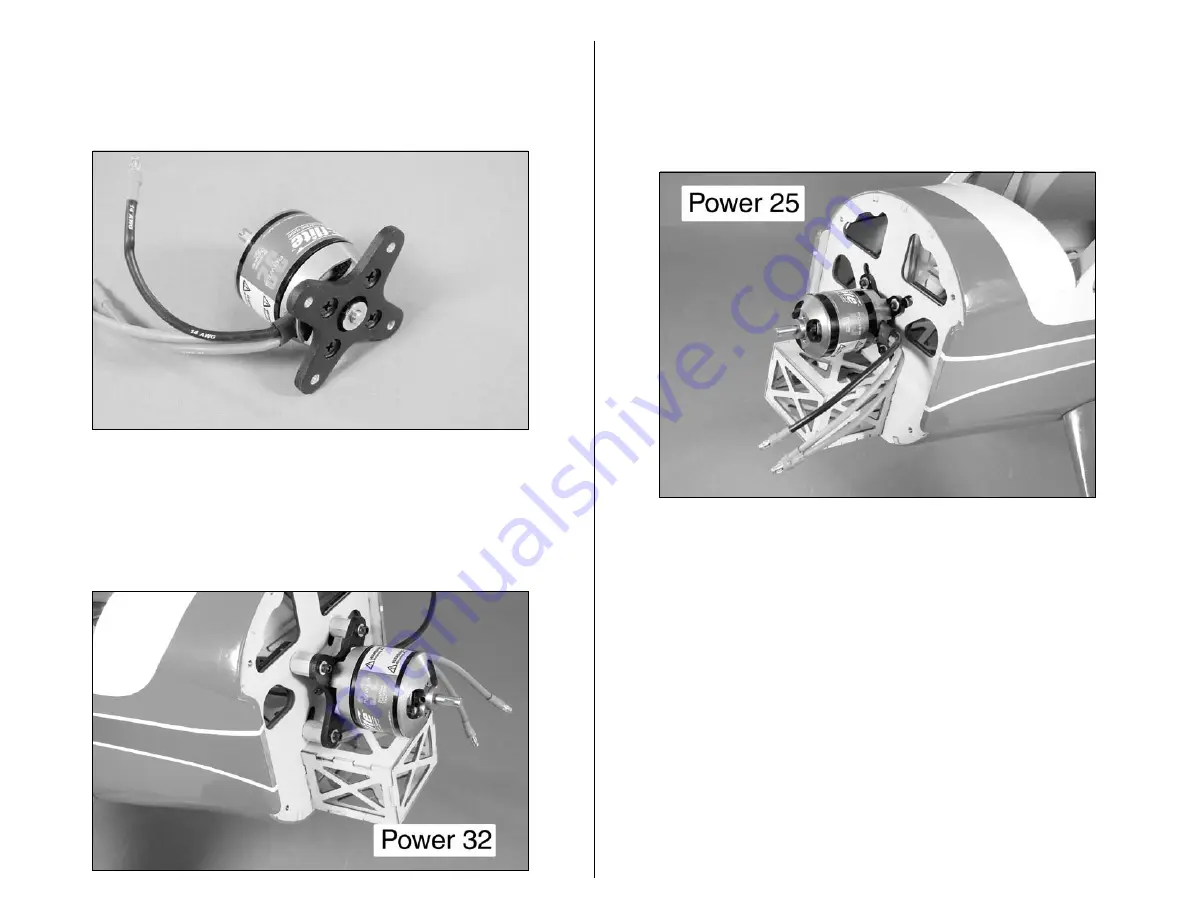
11
E-flite DHC-2 Beaver ARF Assembly Manual
1. Attach the X-Mount to the motor using the screws
provided with the motor and a #2 Phillips screwdriver.
Make sure to use threadlock on all four screws so they
do not vibrate loose.
2a. Attach the Power 32 motor to the firewall using four
4-40 x 1-inch socket head screws, four #4 washers, four
aluminum motor spacers. Tighten the screws using a
3/32-inch ball driver. Make sure to use threadlock on the
four screws to prevent them from vibrating loose.
2b. Attach the Power 25 motor to the firewall using four
4-40 x 1/2-inch socket head screws and four #4
washers. Tighten the screws using a 3/32-inch ball
driver. Make sure to use threadlock on the four screws to
prevent them from vibrating loose.
Note
: The blind nuts in the fuselage for mounting the
motor can be positioned for a variety of motors. Position
them so they are aligned with your particular motor
before mounting it to the firewall.












































